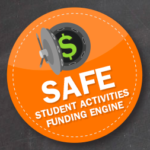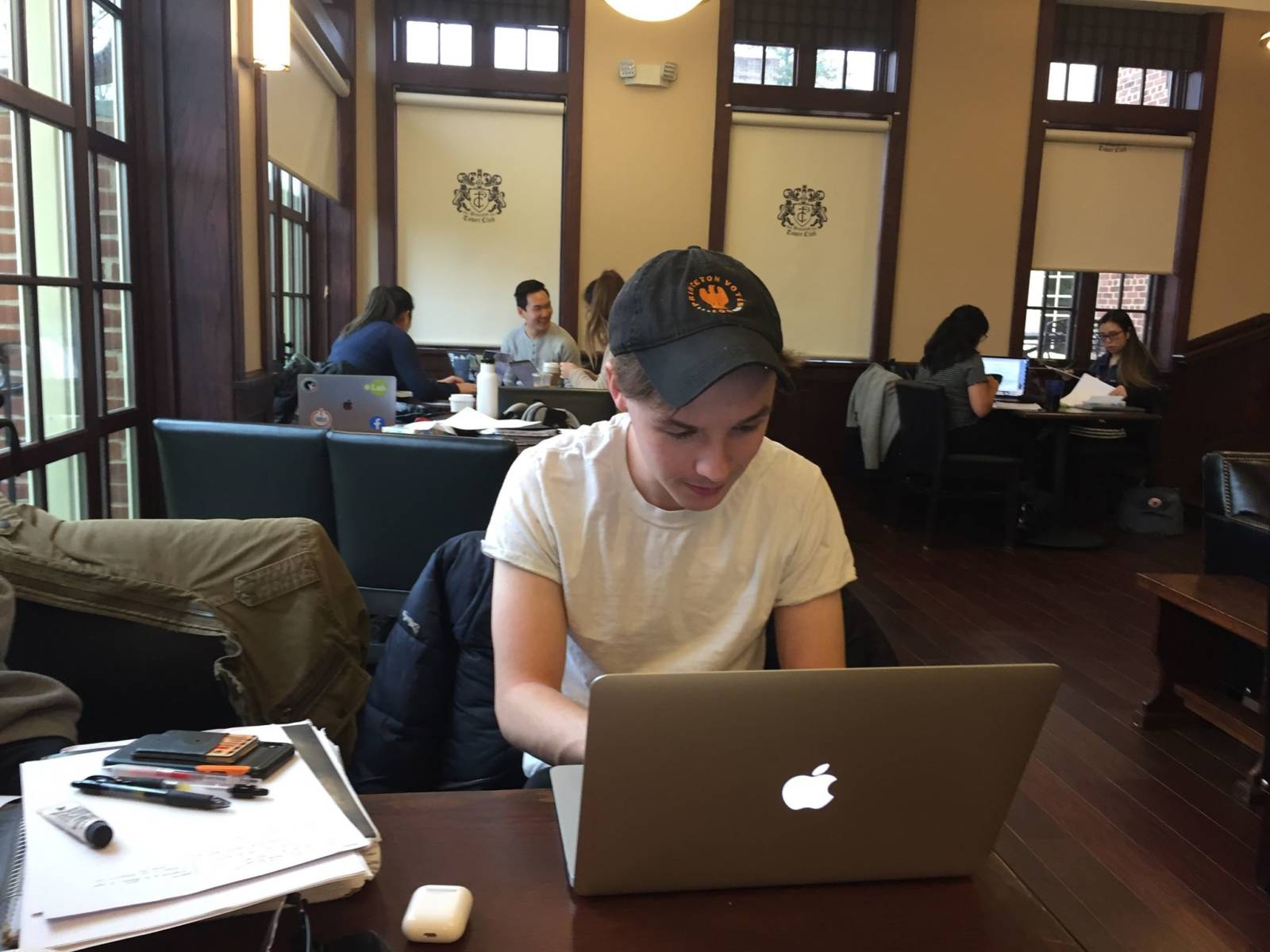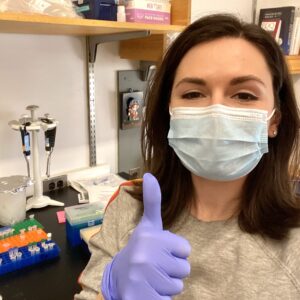Princeton offers a wealth of opportunities to engage in undergraduate research. From smaller projects found in writing seminars to the ever-looming senior thesis, research is woven throughout our academic journeys. Still, outside of this mandatory exposure to research there are also unique opportunities to explore research as an undergraduate. One of the most interesting of these is the Princeton iGem team. I was able to sit down to speak with a member of this year’s team, Dowon Seo ‘27, after he returned from the annual iGem conference in Paris.
Continue reading A Hidden iGem at PrincetonOn “Choosing Sides” in an Academic Debate: The More Precise, the Better
An amusing remark on academics, itself attributed to several different academics, goes something like this: In academia, disputes take on such huge proportions precisely because the stakes of them are so small. Whether this observation is or is not true, I have found that its general sentiment is passed down to undergraduates, if inadvertently so. Of course, there are pedagogical reasons for instilling this impression; when we are learning about debates on a given subject within a discipline, it can help to read the most absolute positions on either side, if only to distill the terms of argument.
But the impression that such debate must necessarily be black and white, and must be of great intensity, can be daunting to accept as an undergraduate writer. Who am I, I wonder to myself, to so totally challenge the work of an established academic researcher? Even if I might disagree with their broader argument, have they not done far more research than I have? Relatedly, what if their research offers some quite usable background information– am I not just a little hypocritical to use it while arguing against the position it was intended to support? Or, what if I agree with smaller asides or observations by the researcher, but not the thrust of their whole argument? In a word, need the division be so absolute within the scholarly conversation?
Continue reading On “Choosing Sides” in an Academic Debate: The More Precise, the BetterDoing Research in a Pandemic, An Interview with Molecular Biology Graduate Student Emily Mesev
For this Spring Seasonal Series, entitled Doing Research in a Pandemic, each correspondent has selected a researcher to interview about the impact of the pandemic on their research. We hope that these interviews document the nuanced ways the pandemic has affected research experiences, and serve as a resource for students and other researchers. Here, Nanako shares her interview.
For this seasonal series, I decided to interview Emily Mesev, a Ph.D. candidate in the Department of Molecular Biology. I was interested in how her experience as a graduate student differed from my experience as an undergrad. Because undergrads aren’t allowed to be in the laboratory (at least for Molecular Biology), I’ve had to change my thesis topic and redirect it to become computational. I was excited to find out whether the graduate student experience had changed in similar ways!
Continue reading Doing Research in a Pandemic, An Interview with Molecular Biology Graduate Student Emily MesevPreparing for your Senior Thesis Before your Senior Year: Tips on Funding your Research
My most recent post focused on gearing up towards your senior year and finding a thesis adviser. I decided to continue this mini “preparing for your senior thesis” series by providing some tips on funding your research! The infamous senior thesis is such a daunting thing to think about as a junior because it is not always clear how early you should begin to plan for it and what steps you should take. At the beginning of the year, I attended an information session through the Woodrow Wilson School regarding thesis research funding. During that meeting, the speakers told students that they should start working on applications for funding as soon as possible if they wanted to receive money for their endeavors.

Senior Thesis Spotlight: An Interview with Sam Arnesen ’20
During finals season, it’s even harder than usual to make time for independent work. So this reading period, I decided to ask a senior, computer science major Sam Arnesen, about the state of his thesis and his plans for spring semester. For his senior thesis, Sam is developing artificial intelligence software that can solve text-based computer games.

What is your thesis about?
My thesis is on text-based games–games like Zork where at every step of the game, you’re given a text description of the scene you’re in and you have to enter some text about what the next move is, like “pick up sword” or “open door.” You can imagine that we often teach computers to play games, but there are a few unique challenges associated with text-based games. Part of it is that it is partially observed: you can see what’s around you, but you can’t see the entire state of the game. The other thing is that it’s very difficult to parse the text and translate it into something meaningful, especially when it comes to actions. There’s stuff out there on various methods to do text-based games and be able to play simple versions of them, but they have a couple issues. First, most of the games are quite simple, and more importantly, the kinds of strategies that it would learn translate very poorly between games unless the games are extremely similar, which is bad because you would expect that certain skills (like having a key and a locked door, or remembering orientations) would be understood. The whole reason why we care about text-based games isn’t because it means anything to play the game, but because we want to be able to learn something about language through these games. So it’s bad if the agents are specific to one particular game, because it suggests that they’re learning idiosyncrasies of the game instead of actual language skills.
I’m specifically working on ways to have more transfer of learning between different kinds of text-based games. I am working on building an agent that’s able to parse walk-throughs of games. A walk-through happens in any kind of game, it’s a set of instructions that tell you what you should do at every step. That’s a non-trivial task: you have to parse that text, translate a paragraph into an action, figure out whether the action you took was the correct action, and be able to use the strategies you learn through parsing the walk-through to learn some general strategy.
Continue reading Senior Thesis Spotlight: An Interview with Sam Arnesen ’20
Coursework and Independent Work: Using One to Guide the Other
Choosing a topic for independent work can be a challenging task. It can be difficult to narrow down the seemingly infinite research topics to one that you find compelling (see my post here with tips on how to do that), and on top of that, you have to juggle your research with coursework that may be unrelated. It isn’t always easy to switch gears between, say, literary criticism and your STL. That said, your coursework need not be totally separate from your independent work, and need not even parallel your independent work at the exact time you are conducting it. With courses for the spring semester just released, I want to suggest ways that you can structure your selections to complement (and even supplement!) your own research. This way, next semester, your own independent work may not actually be so “independent” after all. Continue reading Coursework and Independent Work: Using One to Guide the Other
Research on Campus: Not Just for Juniors and Seniors!
Colleges like Princeton love to brag about their high rates of student involvement in research: our admissions pamphlets are peppered with student testimonials about the accessibility of professors and the university’s commitment to undergraduate research. But although Princeton does provide incredible resources, doing research with professors doesn’t always feel accessible. Especially as a first-year or sophomore student, it can be challenging to find research opportunities outside of classes (except during the summer).
As a first-year student, I definitely felt this pressure in the fall semester. I knew I wanted to be a part of research on campus as soon as possible, but I worried that no professor would want to work with me. After all, I was less experienced than many older students, and as a CBE major, I knew that quantitative and technical skills were of paramount importance in my field. Though I was afraid of being ignored (or worse, rejected!) by professors, I decided to reach out anyway. I emailed my MOL214 professor (who runs a lab in CBE) hoping that he would help give me an introduction to the department. When I went to his office for a simple discussion, he ended up offering me a position, and I’ve been working in his lab ever since! Continue reading Research on Campus: Not Just for Juniors and Seniors!
Staying Up-to-Date with Lab Literature Readings

When beginning a new lab project, whether it is a summer internship, independent work, or a senior thesis, your mentors will likely present you with academic papers relevant to your topic. This will help you begin to frame your experiments and the overarching goals of your research.
But once you understand enough background to begin, staying up to date with recent papers can be difficult, especially when you are balancing course work, extracurriculars, and other commitments in addition to planning and conducting experiments. In my experience, I found it difficult to sit down and do broad scholarly searches on a research topic as I first did when starting a new project. However, strategies such as using library resources and speaking with others in the department facilitated this process. In this post, I will give tips on how to stay current with laboratory news and advances, specifically with STEM research.
Continue reading Staying Up-to-Date with Lab Literature Readings
Finding Your Space in the “Scholarly Conversation”
As I have written for the PCUR blog before, choosing a topic for an open-ended research project can be challenging. Even once you have narrowed your search and settled on an idea you would like to pursue, you may find that other scholars have already written about it. There is indeed a finite number of possible research subjects (even if it seems, as I suggested in my earlier post, that there is infinite possibility), and as undergraduates many of us have yet to find our research niche. This by no means should discourage you! Just because there is existing literature does not disqualify you from making your own contribution. Of course, we are told this in our first-year writing seminars, where we discuss the different “scholarly moves” one can make (“piggybacking” on another scholar’s work, “picking a fight” with a scholar, and many others, as helpfully delineated in this paper).
In this post, however, I do not merely want to rehash what these “moves” are, but rather suggest how one goes about making any intervention, especially in determining what kind of intervention one wants to make. The following are some methods I have found useful in my research: Continue reading Finding Your Space in the “Scholarly Conversation”
Summer Experiences: Gaining Perspective Through Interdisciplinary Research
I’ve known that I wanted to do science research since the age of sixteen, when I spent my first summer in a neuroscience lab. My time in the lab taught me many new skills and enabled me to immediately apply them to unsolved problems–what other summer job could be more interesting than that? Though my specific interests have shifted slightly (I’m now a chemical and biological engineer rather than a neuroscientist), I’ve devoted every summer since to benchwork of some sort.
Consequently, when I started to look for laboratory opportunities last year, I immediately gravitated towards biology research. I had loved the past three summers–why not experience another? In the winter, I applied to internships through Princeton’s International Internship Program (IIP), and I was lucky enough to receive an offer to study the mechanisms of Shigella (a bacterium that causes dysentery) infection at the Pasteur Institute in Paris, France. I accepted immediately, thrilled that I’d be spending my summer abroad–and on Princeton’s dime!
But as the year wore on, I started to consider what the added value of another summer of wet-lab research would be, especially since time constraints would limit my contribution. I felt like was narrowing in on my chosen field too early. Wouldn’t I be bored?
Continue reading Summer Experiences: Gaining Perspective Through Interdisciplinary Research



